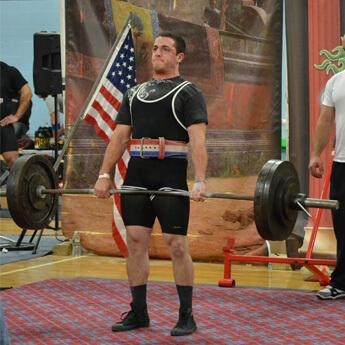Calories Burned Running: How Many Calories Burned Running?
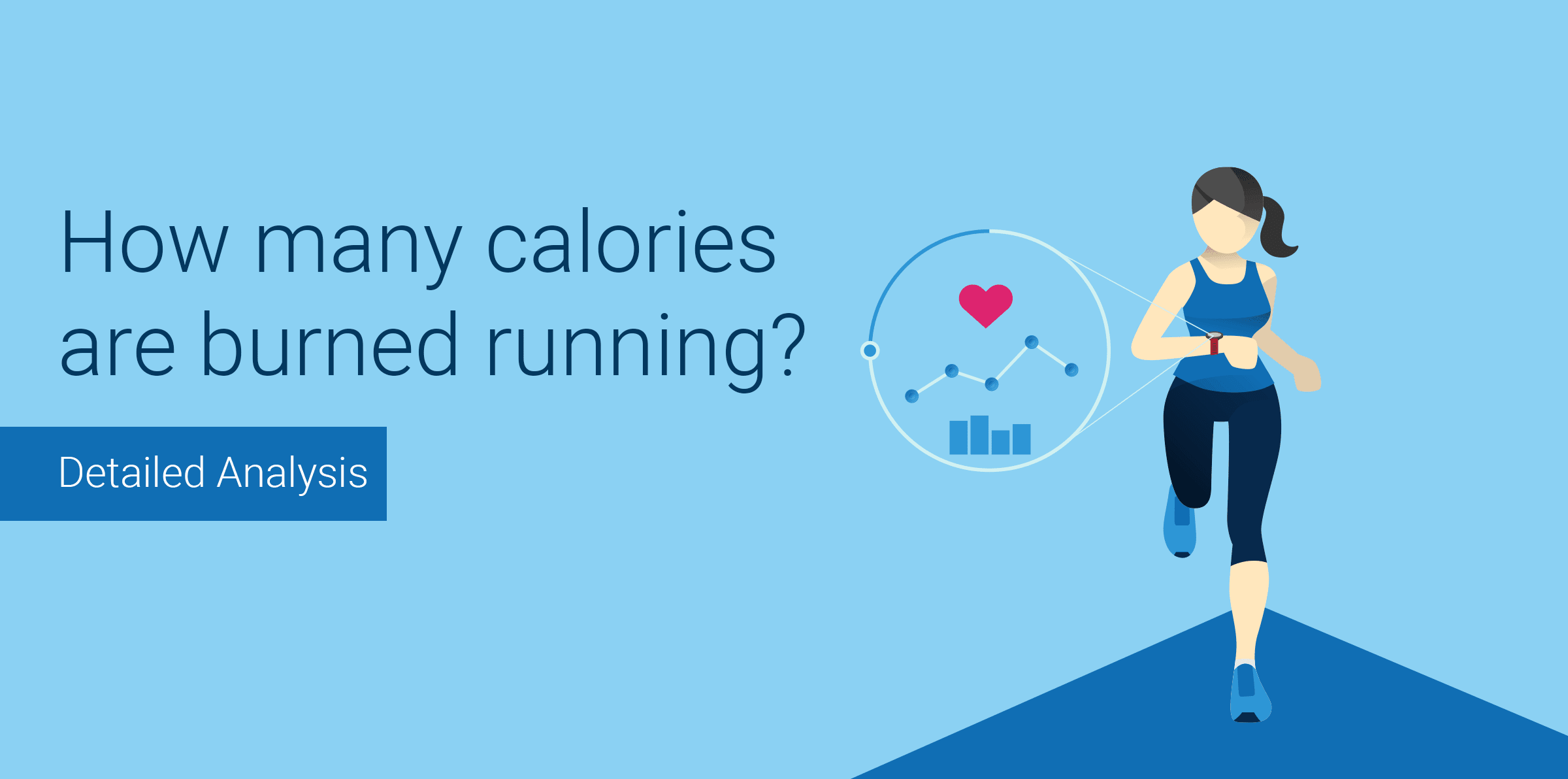
All types of exercise benefits you by burning calories. Specifically, running is one of the most effective exercises to help you burn calories. In this study, we analyse the number of calories burned running, from every angle.
The study breaks down how many:
- Calories are burned running per hour
- Calories burned running per minute
- Miles to run to burn 500, 1,000, 2,000 calories
- Hours to run to burn 2,000 calories
- Calories burned running by weight
- Calories burned running on a road vs up stairs vs weight vest (15% body weight)
Note: The analysis in this study is focused on a 155-lb person running at an average pace of 10 minutes per mile (6 mph), unless specifically noted otherwise. For comparison, see our detailed analysis of calories burned walking and calories burned biking. If interested, check out our research and more running statistics here.
Calories burned running per hour
A 155-lb person can burn anywhere from 563 calories to 1267 calories in an hour. When running at 10 min/mile pace you can expect to burn approximately 704 calories.
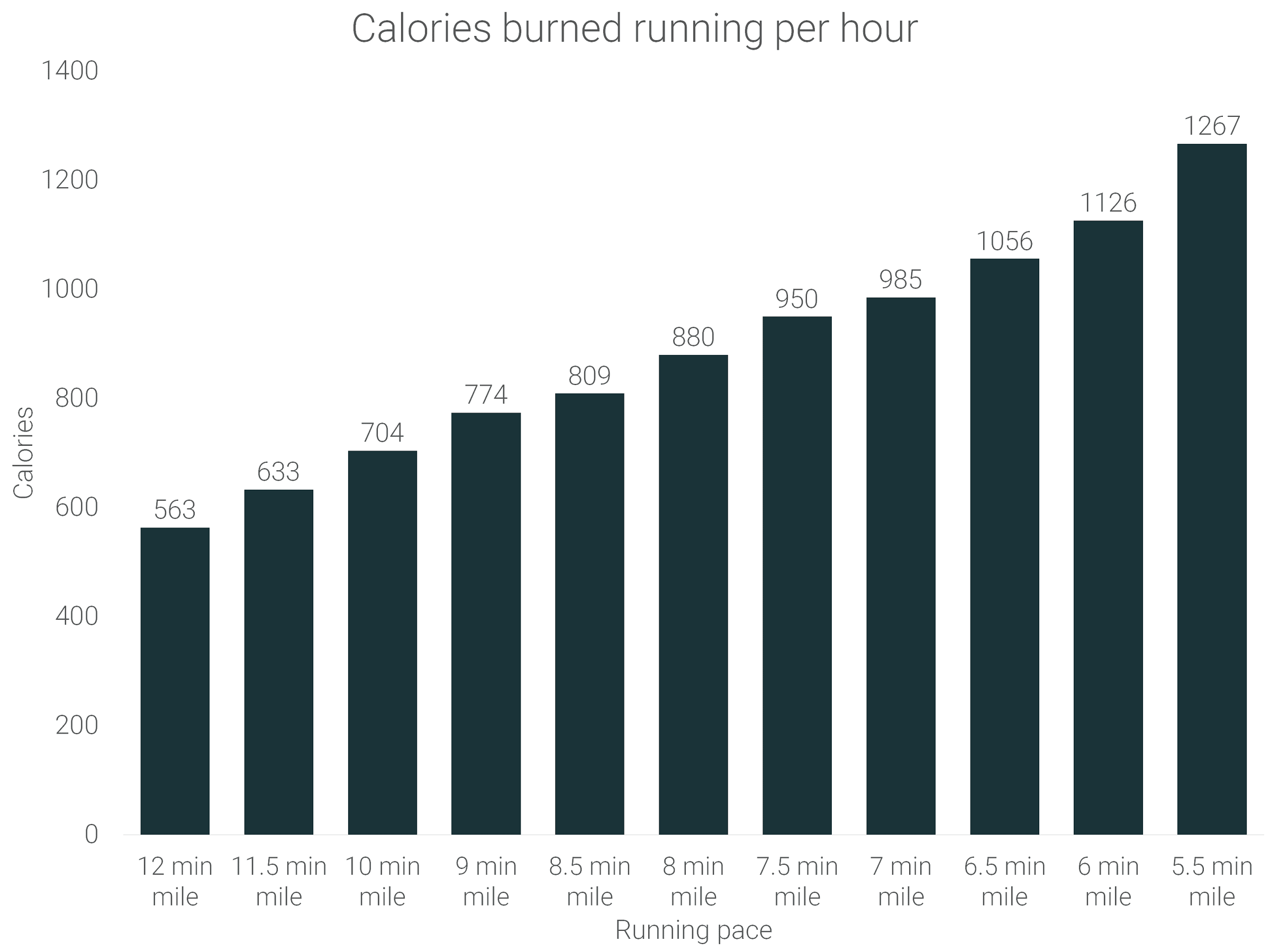
Running at a 12 min/mile pace you burn 33% less calories compared to running at a 6.5 min/mile, which burns 1,056 calories in an hour.
Calories burned running per minute
Every minute of running burns approximately 11.7 calories, which equates to 352 calories burned every half hour.
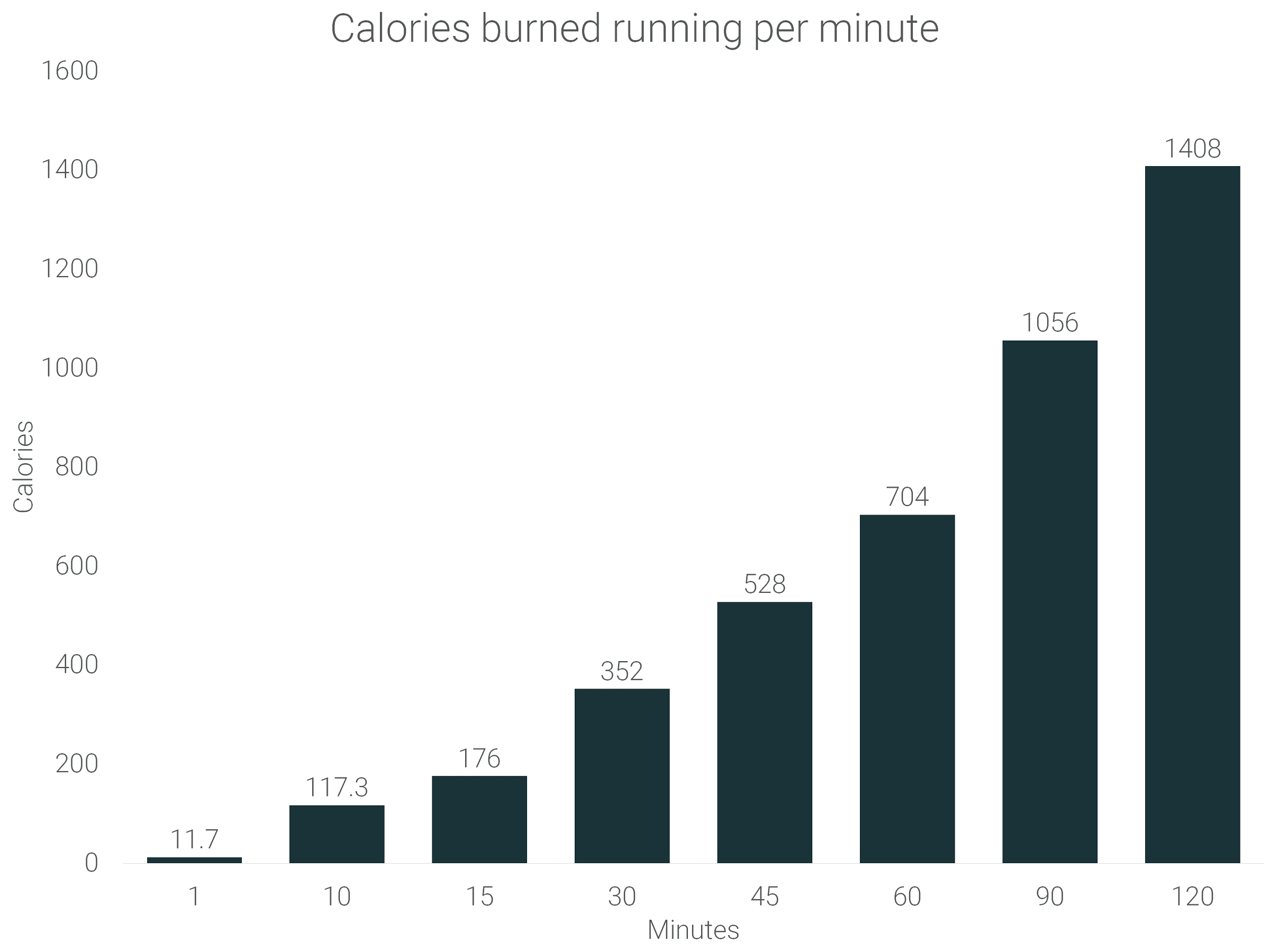
It takes nearly 90 minutes to burn 1,000 calories at a consistent speed of 10 minutes per mile.
Calories burned running by number of miles
Every 4.3 miles you run you burn approximately 500 calories.
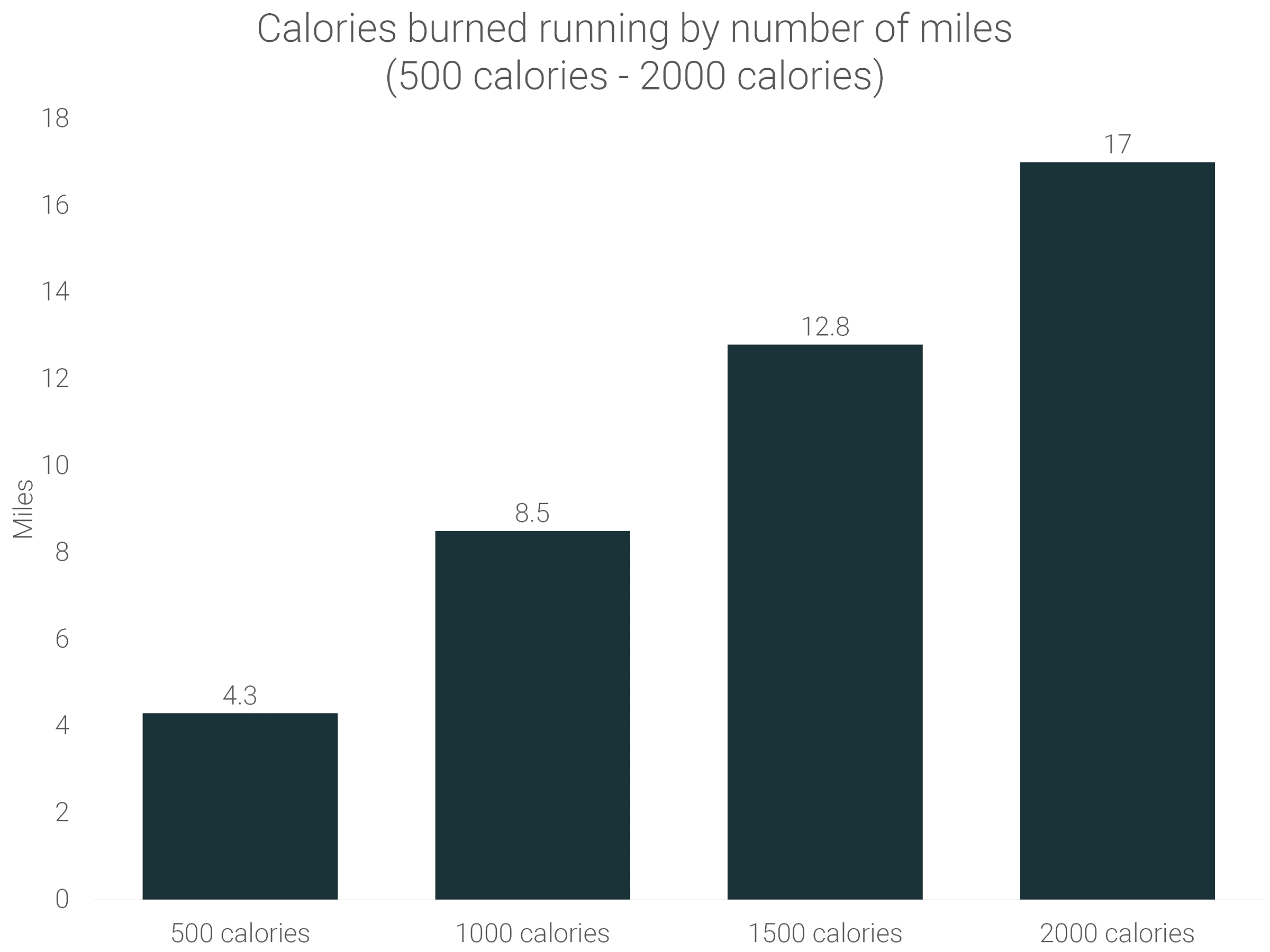
By running 295% further (from 4.3 miles to 17 miles) you burn 4x as many calories (2,000 calories).
Hours to run to burn 2,000 calories
To burn 2,000 calories running you can run for anywhere between 3.6 hours at pace of 12 min/mile to 1.6 hours at 5.5 min/mile.
At an average speed of 6 mph (10 min/mile) it will take you 2.8 hours to burn 2,000 calories. Reaching that same level of caloric burn at a speed of 5 mph (12 min/mile) requires you to run 28% longer.
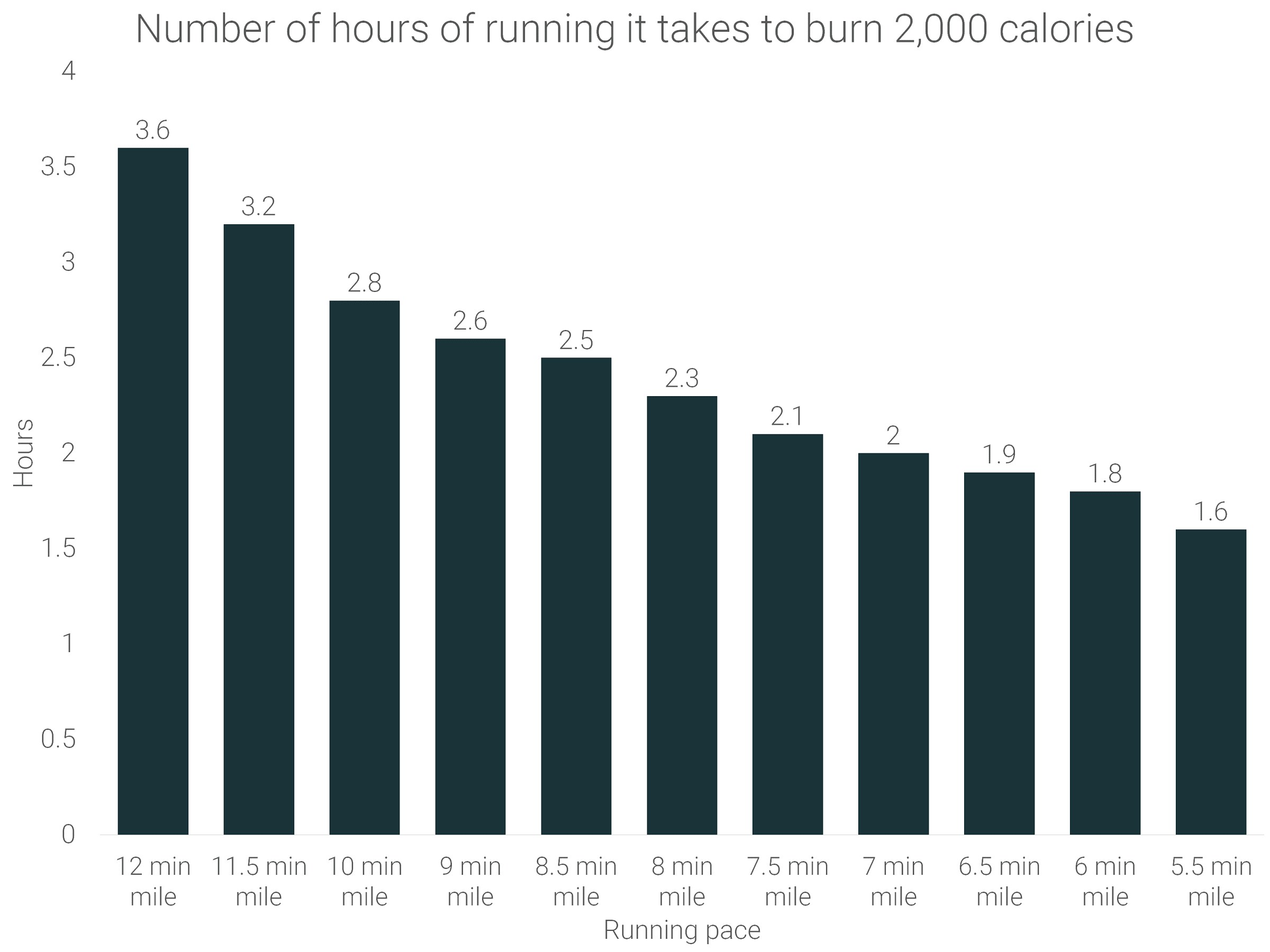
On the flip side, you can burn the same amount of calories in a shorter period by increasing your speed. You decrease the time needed to burn 2,000 calories by 125% if you increase your pace from a 12 min/mile to 5.5 min/mile (5 mph to 10.9 mph).
Calories burned running by weight
On average, you can burn 590 to 931 calories per hour, depending on how much you weigh.
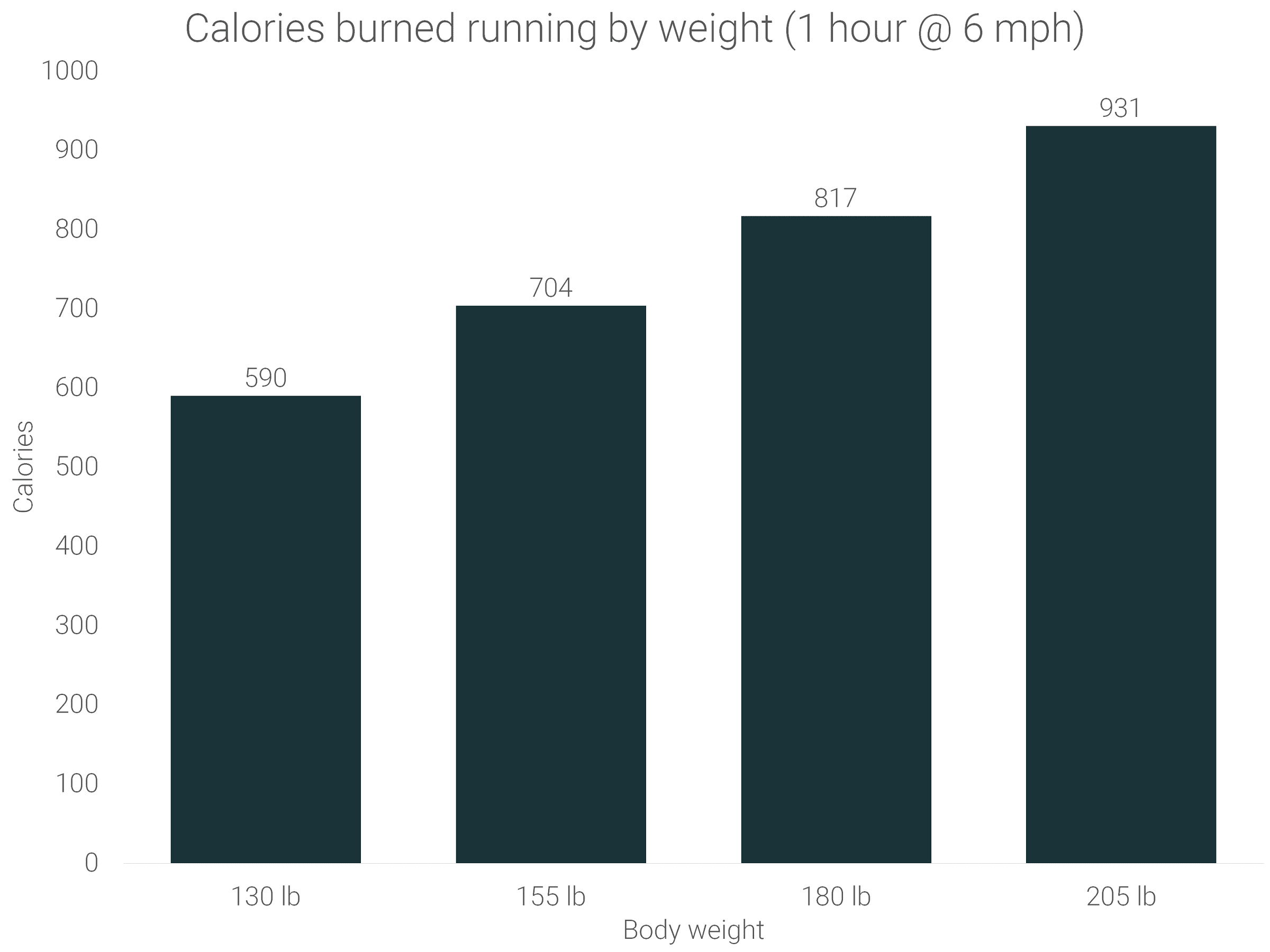
A 155lb-person burns 19% more calories than a 130lb person running at the same pace for an hour.
However, the same person burns 24% less calories than a 205lb individual going at the same speed.
Calories burned running on a road vs up stairs vs weight vest (15% body weight)
You burn approximately 1,056 calories by running up stairs, which is 87.6% more in comparison to running on a flat surface. Hitting the stairs is the most effective way to maximise calories burned running.
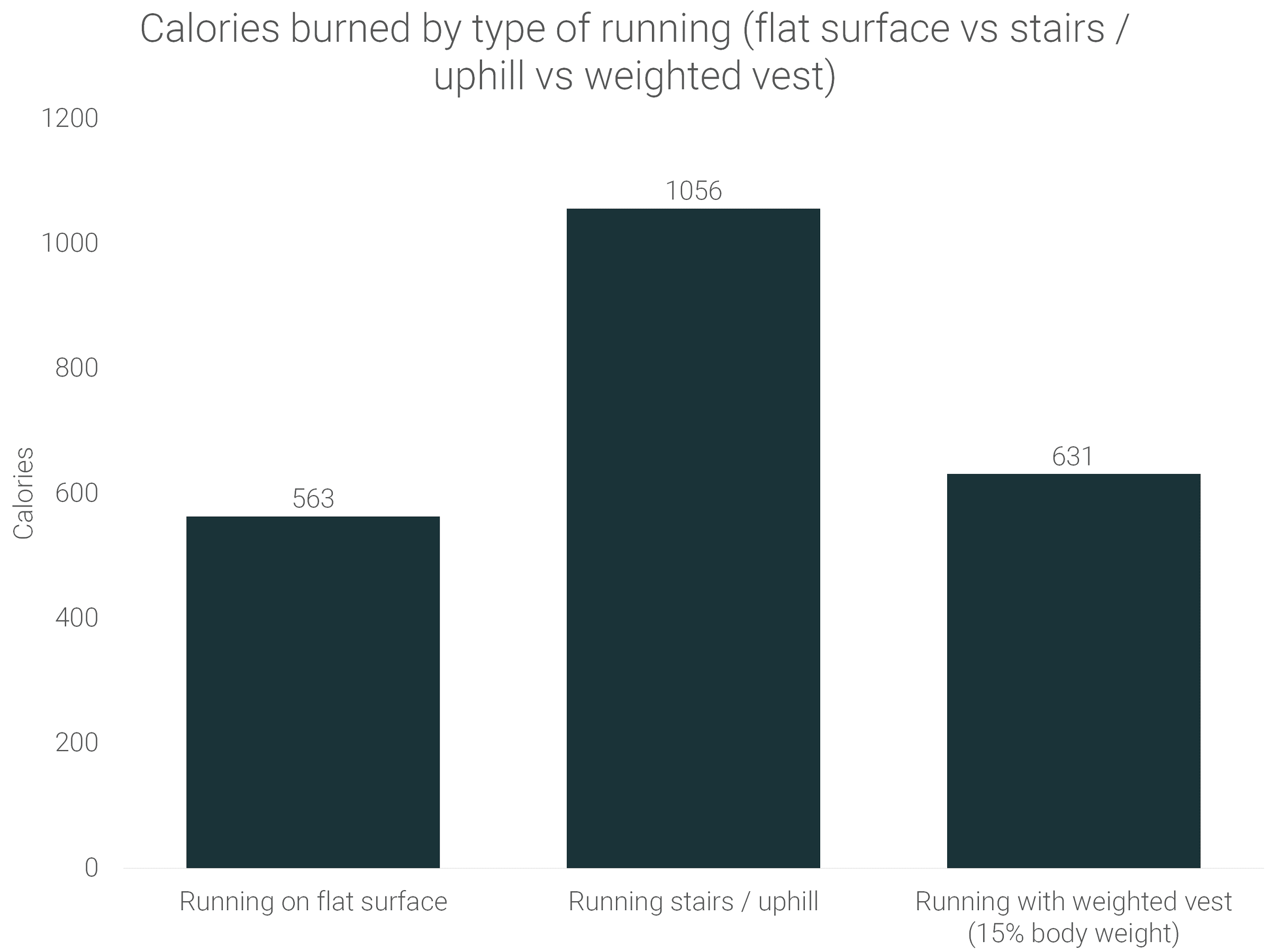
Another interesting tactic is to wear a weighted vest equivalent to 15% of your body weight. This method will help you burn 12% more calories than running in without it.
Combining a weighted vest workout with stairs running seems to be the most effective means to burn the most amount of calories in the shortest amount of time.
About RunRepeat
RunRepeat shoe reviews guarantee objectivity because 1) we purchase shoes on our own 2) we properly test them outside (running, walking, hiking, training) and 3) we test them in our in-house lab. If you’re thinking about picking up running to help you burn some calories, check out our collection of running shoes. Choose stylish kicks from Nike and Adidas without compromising on function. Meanwhile, if you’re training for a marathon or race, there’s ASICS, Saucony, and Brooks to choose from as well.
Find a pair that suits your needs, whether you’re running on a treadmill, the trails, or the road. There are also running shoes that would help keep your footing in the snow or the mud.
Use of Content
- Like the content of this article and want to know more? You can send queries to Nick Rizzo at nick@runrepeat.com or to set up an interview.
- All data from this analysis is free to use for any web coverage of the topic or related content. We only request that you link back to this original source.
